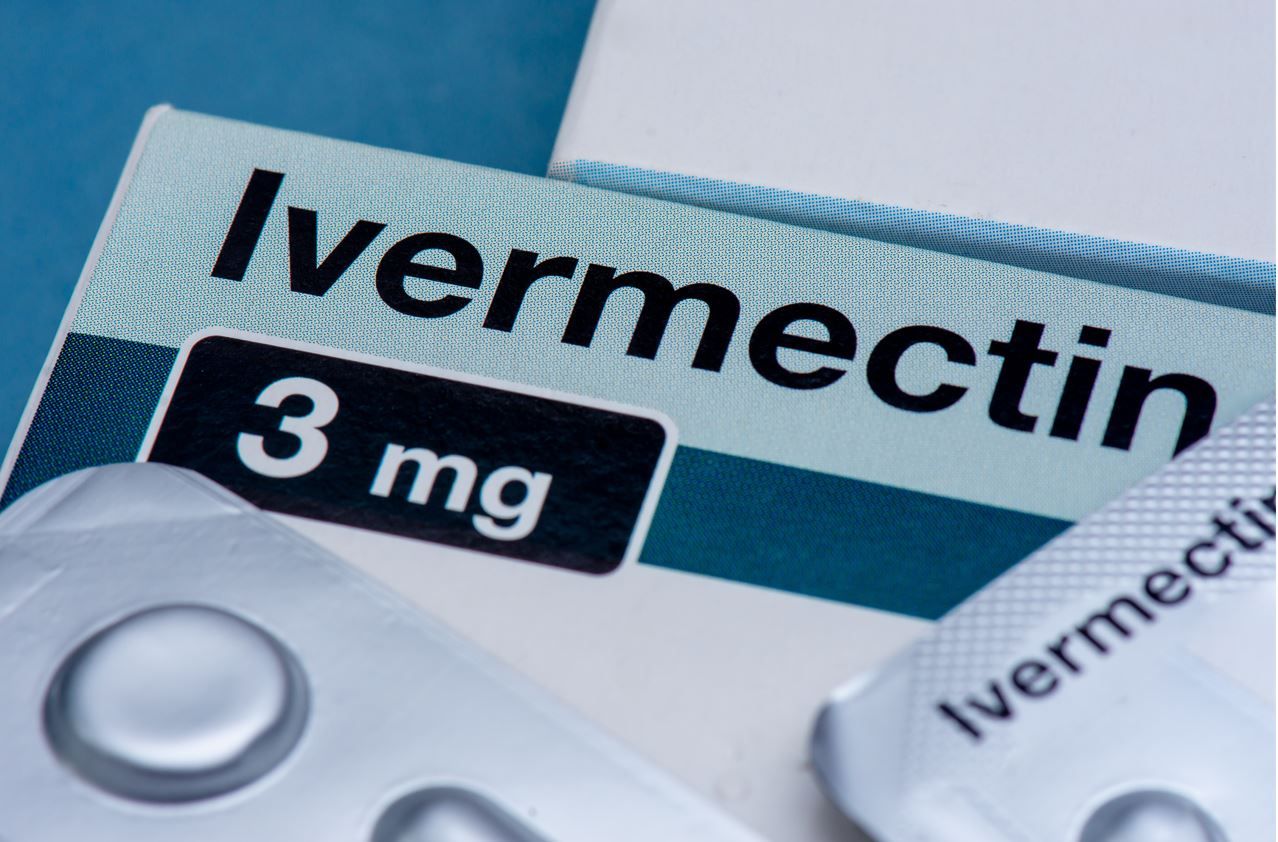Physicians are allowed to prescribe FDA-approved drugs for non-FDA approved indications. However, in my opinion, it is irresponsible for a physician to do so in the absence of any credible evidence of benefit—even if a patient or family member is willing to accept the risk. Prevention of severe cases of COVID-19 is best done by getting vaccinated, not by taking ivermectin, and certainly not by taking ivermectin meant for large farm animals.
- Clinical Technology
- Adult Immunization
- Hepatology
- Pediatric Immunization
- Screening
- Psychiatry
- Allergy
- Women's Health
- Cardiology
- Pediatrics
- Dermatology
- Endocrinology
- Pain Management
- Gastroenterology
- Infectious Disease
- Obesity Medicine
- Rheumatology
- Nephrology
- Neurology
- Pulmonology
Ivermectin Insanity
Ivermectin has shown no clinical benefit for the many viral infections it has been studied in - including COVID-19. Why are patients buying it and physicians prescribing it?
©HJBC/stock.adobe.com

A judge in Ohio ordered a hospital to administer ivermectin to a ventilated patient, at his wife’s request, from a prescription written by a physician not affiliated with the hospital.
- The FDA is investigating a physician in Arkansas who has written “thousands” of prescriptions for ivermectin.
- Cattle feed stores are running out of the product, which costs more than $300 when used to deworm the cows.
- Meanwhile, the Mississippi Poison Control Center has stated publicly that 70% of recent calls have been related to ingestion of animal formulations of ivermectin.
How did this craziness begin?
Ivermectin was a “game-changer” when it was approved in 1981 as treatment for parasite-caused river blindness (onchocerciasis). The pharmaceutical company that discovered the drug in 1975, Merck, donated it to any country in which onchocerciasis was present. It has since been studied for clinical benefit in several viral infections, including HIV, dengue, Zika, and yellow fever. No clinical benefit was found in any of those trials.
The FDA, NIH, CDC, and ID Society of America all recommend against using the drug to prevent or treat COVID-19, outside of clinical trials. In fact, there are multiple ongoing and recruiting trials in the United States and elsewhere investigating the efficacy and safety of ivermectin, alone or in combination, for various conditions, including COVID-19 and acne rosacea.1 And for every clinical trial, there are probably 10 – 20 in vitro trials investigating various aspects of the drug.
Ivermectin has been shown to inhibit the host importin alpha/beta-1 nuclear transport proteins.2 These proteins are part of an intracellular transport process that various viruses “hijack” to enhance infectivity by reducing the host’s antiviral response.3 Ivermectin also may block or interfere with the attachment of the SARS-CoV-2 spike protein to the ACE-2 receptor4 and possibly have anti-inflammatory properties.5 So at least there is a plausible mechanism of action by which ivermectin could be of benefit.
But with so many clinical trials completed, why has there been no convincing evidence that ivermectin “works” against SARS-CoV-2?
First, most of the trials were small, which makes it very difficult to detect small, but real, differences. Many were not randomized. And many used multiple drugs, making it challenging to detect any benefit from any individual drug in the “cocktail.” In addition, there are at least 2 components to COVID-19:the adverse effects of the virus and the adverse effects of the body’s immune response. It is quite likely that ivermectin is not a potent enough anti-inflammatory drug to effectively treat the cytokine storm seen in patients with severe diseases.
It is quite likely that ivermectin is not a potent enough anti-inflammatory drug to effectively treat
the cytokine storm seen in patients with severe disease.
the cytokine storm seen in patients with severe disease.
Finally, it is very likely that the dose of ivermectin used in these trials was “too low,” even though the typical dose was about 4 times greater than the dose used to treat scabies (for which ivermectin still does not have the FDA-approved indication). It is estimated that it would take 100 times more drug in vivo to get the same plasma concentrations necessary to achieve the apparent antiviral efficacy seen in vitro. And doses that high would be associated with serious adverse effects. Even at
doses much lower, serious neurologic and gastrointestinal side effects have been reported. While “more is better” when it comes to killing viruses, more is not better when limited by toxicity. Hence the need for large, well-designed, well-controlled clinical trials that look at both efficacy and safety.
Physicians are allowed to prescribe FDA-approved drugs for non-FDA approved indications. However, in my opinion, it is irresponsible for a physician to do so in the absence of any credible evidence of benefit—even if a patient or family member is willing to accept the risk. Prevention of severe cases of COVID-19 is best done by getting vaccinated, not by taking ivermectin, and certainly not by taking ivermectin meant for large farm animals.
References
- https://www.Clinicaltrials.gov
- https://www.covid19treatmentguidelines.nih.gov/therapies/antiviral-therapy/ivermectin/
- Yang SNY, Atkinson SC, Wang C, et al. The broad spectrum antiviral ivermectin targets the
- host nuclear transport importin alpha/beta1 heterodimer. Antiviral Res. 2020. Available at: https://www.ncbi.nlm.nih.gov/pubmed/32135219.
- Lehrer S, Rheinstein PH. Ivermectin docks to the SARS-CoV-2 spike receptor-binding domain attached to ACE2. In Vivo. 2020;34(5):3023-3026. Available at: https://www.ncbi.nlm.nih.gov/pubmed/32871846.
- Zhang X, Song Y, Ci X, et al. Ivermectin inhibits LPS-induced production of inflammatory cytokines and improves LPS-induced survival in mice. Inflamm Res. 2008;57(11):524-529. Available at: https://www.ncbi.nlm.nih.gov/pubmed/19109745.

Rodger D. MacArthur, MD, is Professor of Medicine, Division of Infectious Diseases and Office of Academic Affairs, Medical College of Georgia at Augusta University, Augusta, Georgia. Dr MacArthur is an NIH-funded researcher and before arriving at the Medical College of Georgia, he headed the Wayne State University AIDS clinical trial program. He is widely recognized as an authority the development of antiretroviral treatment.
